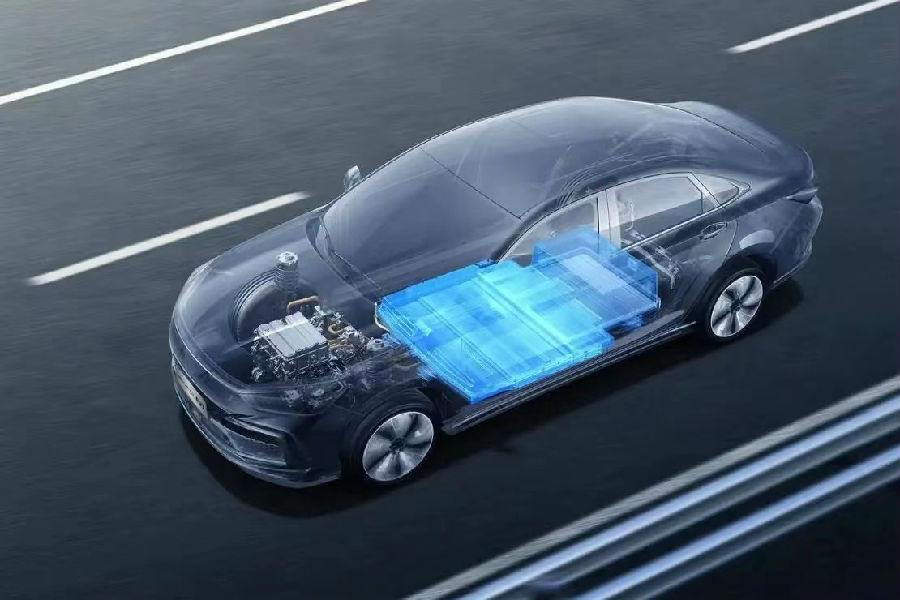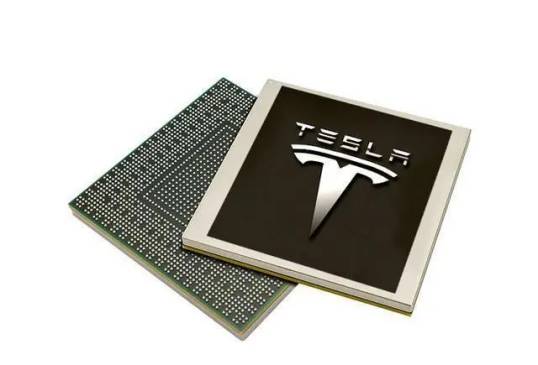
As early as 2019, Tesla officially released its self-developed self-driving electronic chip. According to Musk, this self-developed electronic chip manufactured by Samsung is "the best electronic chip in the world", far Outperforming other competitors, its performance is 21 times that of the Nvidia chip previously used. Tesla believes that while the performance is greatly improved, the cost and power consumption of its self-developed chips are lower than those of the previously used solutions. At present, BYD's self-developed electronic chips are also in full swing.

At the second-quarter earnings meeting, Tesla said that Tesla does not need to manufacture its own chips and will cooperate with suppliers. Tesla has already used a large number of custom chips. At the same time, Tesla is also reducing the use of electronic chips and dealing with the supply of electronic chips by rewriting software and integrating various functions.
Tesla Inc. (TSLA) has emerged as one of the industry's biggest winners in a year that has been plagued by semiconductor shortages and clogged global supply chains. The company's success is partly due to its Silicon Valley roots.
Industry executives and consultants say Tesla has been able to keep production lines running in part by relying on the company's in-house software engineering expertise, making it better than many rival automakers to adapt to a global semiconductor shortage. Easy to do. Chips are used everywhere, from motor control to mobile phone charging.

Tesla (Tesla) is an electric vehicle and energy company in the United States, headquartered in Palo Alto (Palo Alto), with a market value of 210 billion US dollars, production and sales of electric vehicles, solar panels, and energy storage equipment. Co-founded by Martin Eberhard and Mark Tarpenning on July 1, 2003, the founders named the company "Tesla Motors" in honor of physicist Nikola Tesla. Tesla strives to provide every ordinary consumer with pure electric vehicles within their spending power; Tesla's vision is to "accelerate the global transition to sustainable energy."
Tesla's original new energy vehicle entrepreneurial team mainly came from Silicon Valley, using IT concepts to build cars, rather than the traditional car manufacturer's ideas represented by Detroit. Therefore, Tesla's electric car is often seen as a story of a Silicon Valley kid fighting a Detroit giant.
Tesla plans to develop a network of Supercharger stations and service centers in the U.S. to boost car sales. Tesla's email mentions that the company plans to reduce the cost of electric vehicles and make them mainstream. Tesla CEO Elon Musk said Tesla will soon unveil plans for a "gigafactory" critical to the company's efforts to make cheap electric cars that cost $35,000. Tesla's cheapest Model S electric car in 2014 sold for $72,000, with some configurations costing more than $100,000.
From March to June this year, Tesla’s operating income was $16.93 billion, up 41.6% year-on-year, but down 9.7% month-on-month; net profit was $2.259 billion, a sharp increase of 98% year-on-year, but down 31.9% month-on-month. Fortunately, the market has expectations for this, and the previously announced sales data has "warnings". Tesla delivered a total of 255,000 new cars in the quarter, a year-on-year increase of 27%, but a month-on-month decrease of 18%. Therefore, after the financial report was issued, the response of the capital market was acceptable, and the stock price did not "collapse" before the market.
The scale of production and sales is obviously still an important factor affecting Tesla's operating efficiency. For the current Tesla, maintaining a relatively high-speed growth in production and sales has direct and significant benefits to its gross profit margin and profitability, and even maintains it. The status of the “overlord” of new energy vehicles is very critical. In the first half of this year, the sales of new energy vehicles of the Chinese brand BYD (002594) reached 641,000 units, surpassing Tesla and becoming the global sales leader in the field of new energy vehicles. For Tesla, who has a halo above his head, it's hard to completely ignore it.
The Tesla executive acknowledged that the supply of chips continues to be tight, but he also said there are no major problems with supply of chips and batteries, barring unexpected supply chain disruptions. Tesla says there is no need to make its own chips, they will work with suppliers, and Tesla already uses a lot of custom chips. Musk believes that how to refine the key raw material for lithium batteries is a priority because lithium is limiting Tesla battery production. "I want to again urge entrepreneurs to get into the lithium refining business," he noted.
It is worth noting that Musk said that lithium is limiting Tesla battery production, and how to refine the key raw materials for lithium batteries is a top priority. He reiterated his call for entrepreneurs to join the lithium refining industry, "It's like software profits, you can't lose
